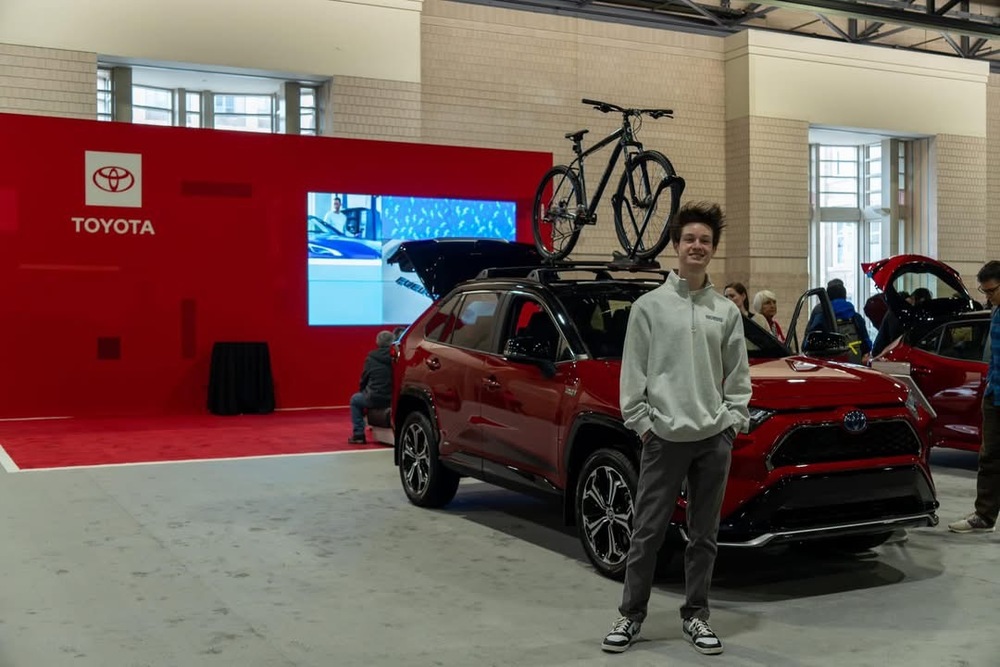At Berks Career and Technology Center (BCTC), students benefit from many career exposure opportunities including guest speakers, field trips, and internships. But the highlight of BCTC’s Work-Based Education (WBE) program is its Cooperative Education (Co-op) opportunities—paid, career-aligned positions that provide a direct pathway from student to employee.
“Co-op is what truly sets BCTC apart,” explained Wendy Harris, WBE Coordinator. “It’s designed to connect technical training to real-world careers, giving students the chance to earn while they learn.”
In the 2024–25 school year alone, over 200 students participated in co-op, working during the school year and summer months. All co-op positions are paid, and most students earn competitive wages. Many in Construction and Engineering/Manufacturing programs start at $20.00 or more per hour, with wages varying by industry.
Co-op placements begin only after students demonstrate technical readiness through their BCTC program training. “PDE (Pennsylvania Department of Education) mandates developing a training plan for each co-op student,” Harris noted. “It links the student’s program curriculum to the job (co-op) description.” Beyond technical skills, employability is also a key focus. BCTC integrates Career Education and Work (CEW) standards, preparing students for professional environments. “Our instructors come from industry,” said Harris. “They model expectations like safety, dress code, and work ethic in the classroom.” Students also receive a daily work ethic grade that reinforces the professionalism expected in the workplace.
The WBE team—Coordinators Wendy Harris and Keith Nichols, along with Administrative Assistant Kayla Bernet—supports students through every step, from resume prep and applications to interviews and onboarding. Once placed, students are monitored through monthly on-site visits, daily electronic worklogs, and performance reviews from employers. A portion of the student’s BCTC grade is based on these monthly reviews. Co-op students also attend monthly employability sessions that cover real-world skills, such as reading a paystub or workplace communication.
“If an issue arises, BCTC has strong support systems in place to help students succeed,” Harris explained. “Whether it’s guidance from their instructor, assistance from support staff, or help from the WBE Coordinator, we work together to keep students on track and growing in their placement.”
The intent of co-op is long-term employment, creating a pipeline from BCTC to the local workforce. Employers benefit from hiring well-trained, highly recommended students who have already demonstrated their abilities in the classroom and lab. “We talk with both the employers and students about career intent,” Harris shared. “The goal is to set each student up for career success right out of the gate.”
One of BCTC’s many successful co-op partners is Performance Toyota Volvo, where students gain hands-on experience in Media, Collision, and Customer Service departments. Lorrie Henne, Executive Director – People and Community, praised the program:
“Performance Toyota Volvo is proud to partner with BCTC and their outstanding co-op program—their coordinators are true professionals and a pleasure to work with. The students who join us are consistently prepared, showing professionalism, timeliness, attention to detail, and strong collaboration skills that often exceed what we see in more experienced candidates. Their readiness for the workplace is a true testament to the quality of BCTC’s training and mentorship.”
For Harris, seeing the growth in students is the most rewarding part: “The WBE office opens the door, but the student still has to take the first step. The growth in confidence and technical skills we see through co-op is incredible. These opportunities are truly life changing.”

